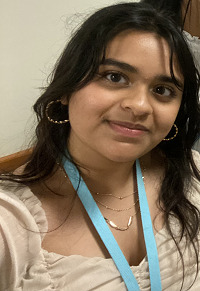Editor’s Note: This viewpoint was presented during a recent Iredell-Statesville Schools Board of Education meeting.
BY ARYA MEHTA

I want all of you, real quick, to think of yourself when you were also a teenager. Dreams? Aspirations? Worries? Traumas? Laurie Halse Anderson had all of these, and she says in her memoir “Shout” that she was 13 years old when she was first sexually assaulted. She was a minor through multiple assaults and attempted assaults addressed in the book. So were tens of thousands of rape victims in the last year. Starr, in “The Hate U Give” by Angie Thomas, was 10 years old when she saw her friend shot in a drive-by, and 16 when she saw her friend Khalil killed when their car was pulled over. Hundreds of families and youth are currently going through the same thing. What does that do to a person? You carry that with you for the rest of your life, but you don’t know how to cope because no one relates.
Anderson, Thomas, and many other authors write these books to speak to us, people my age, to allow us to find ourselves in constructed characters to process real problems, and real traumas.
Have you ever been in a room where every single person was emotionally connected, brought together by a shared pain, one that’s slowly being released? It’s catharsis. That’s what I and seven other women felt, tearing up as we read poems from “Shout” together.
Taking away these books is what contributes to grooming, to sexual unawareness because children aren’t educated about what happened to them, and fall into traps of searching for reasons, for validation.
Instead of finding release in fiction, we turn to dangerous ends in real life. Drug use and suicide shoots up in students who experience traumas when they think they are alone in their struggles. Why do you think 63 percent of sexual assaults are not reported? Because no one represents rape victims in the media that adolescents consume. If our educators don’t allow us to read about things that happen every day, around us, why would we feel safe enough to speak about our own experiences?
A censored book is lives lost. By banning the availability of books in public spaces because of content that may offend you, you are setting up youth for a life of silence. Ignorance does not equal safety. Give us our choice.
Arya Mehta is a student at South Iredell High School.




“Ignorance does not equal safety.” Thank you, Ms. Mehta, for the courage to speak up.
Well said. Thank you for sharing your important and heartfelt words.
Without the stories of others who have experienced these traumas the only one victims have is the one told to them by the people who assault them. They have no validation for the fear, shame, aloneness, anger, and other feelings. If they express their feelings, they’re often told by parents, friends, etc those feelings aren’t valid. Thank you for sharing this eloquent description the value of books that aren’t “sunshiny.”
Arya Mehta beautifully demonstrates the power of words to inspire all of us to open our minds and hearts. And to keep libraries, classrooms, and books open! Thank you for sharing your wisdom, Arya Mehta.
Arya, thank you for your words. Literature, poetry can help someone connect, grow and heal. An emotionally healthy child is better prepared to learn and be educated. We shouldn’t fear what our children might learn, but fear not preparing our children to learn.